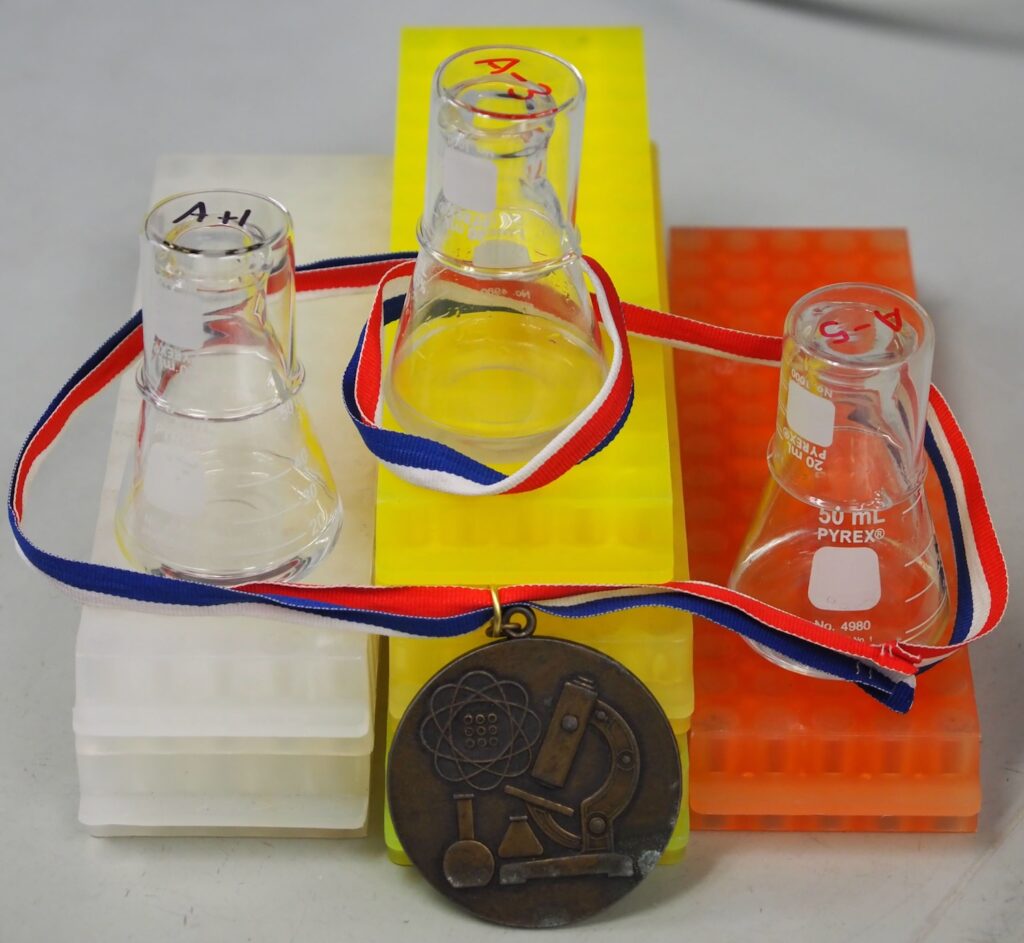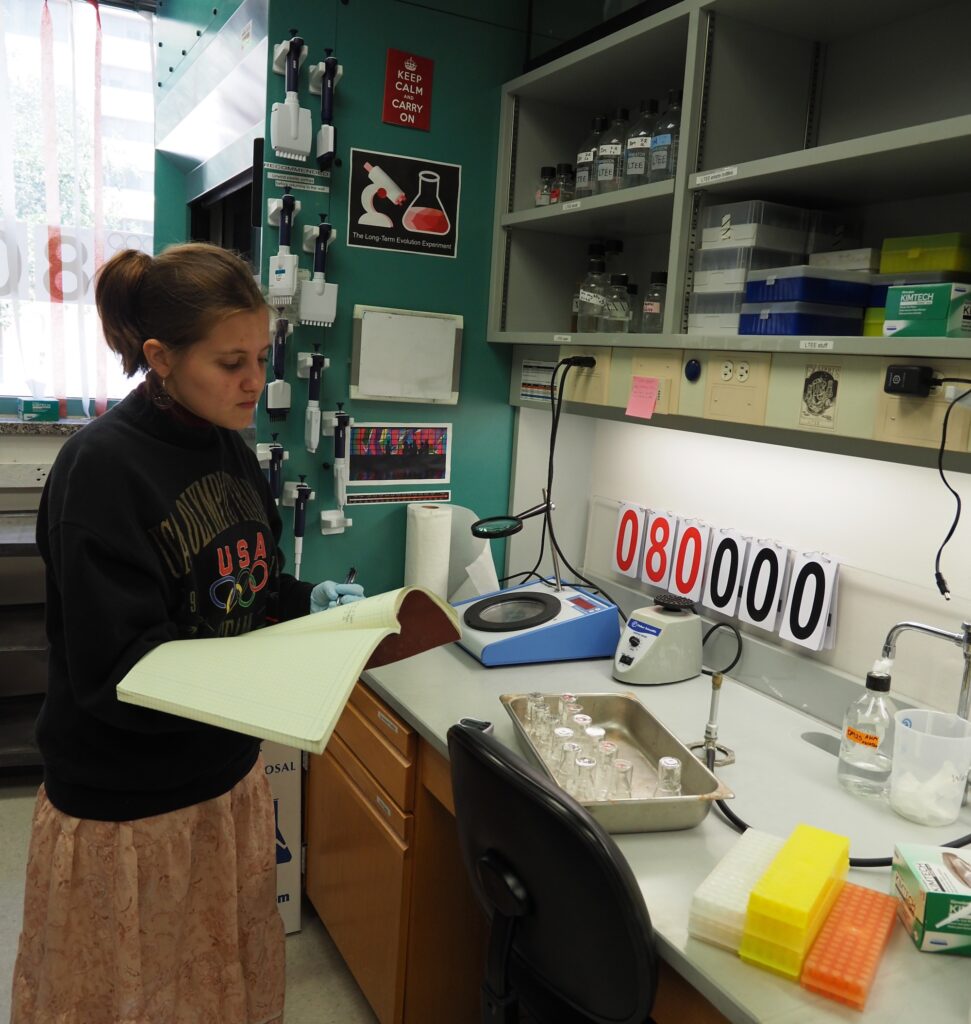On August 7th, we froze down the 80,000-generation* populations of the LTEE. We’re pretty sure this is both a new Olympic Record and World Record and that these E. coli have reached an all-time high in fitness in their flasks.

It’s been a great team effort keeping the experiment running smoothly. There have been no significant interruptions in the daily transfers or suspected contamination events for over a year now!
Jack Dwenger who “coached” the LTEE from November 2022 to July 2024 has taken a position at Penn State to pursue his interests in chemical ecology. Before Jack left, he trained Alexa Morton so she could step in as their new coach without missing a beat. The LTEE is in good hands. Alexa is a veteran of the 2023 UT Austin iGEM team and a recent Dean’s Honored Graduate.

The Olympics theme has had everyone debating how the 12 different populations of the LTEE would fare against one another in different events. Some are easy to judge: Ara–3 wins the only medal in citrate utilization, and it’s DNF (did not finish) for the other 11 populations. Some events will only be decided after more research: Which population has accumulated the most mutations? Which population has the highest fitness when competing for glucose? Which population has the most complex ecology? Which population has the largest cells?
The 80,000-generation populations are waiting in the freezer to be revived for future experiments that will answer these questions.
*One of the twelve populations (Ara–3) is 2,500 generations behind and another (Ara+6) is 500 generations behind due to past contamination incidents like the one discussed here. The last time we had to roll back any of the populations was October 2023.
Pingback: How E. coli Rose to Prominence – Just One More Addendum (1|2) – Small Things Considered
Comments are closed.